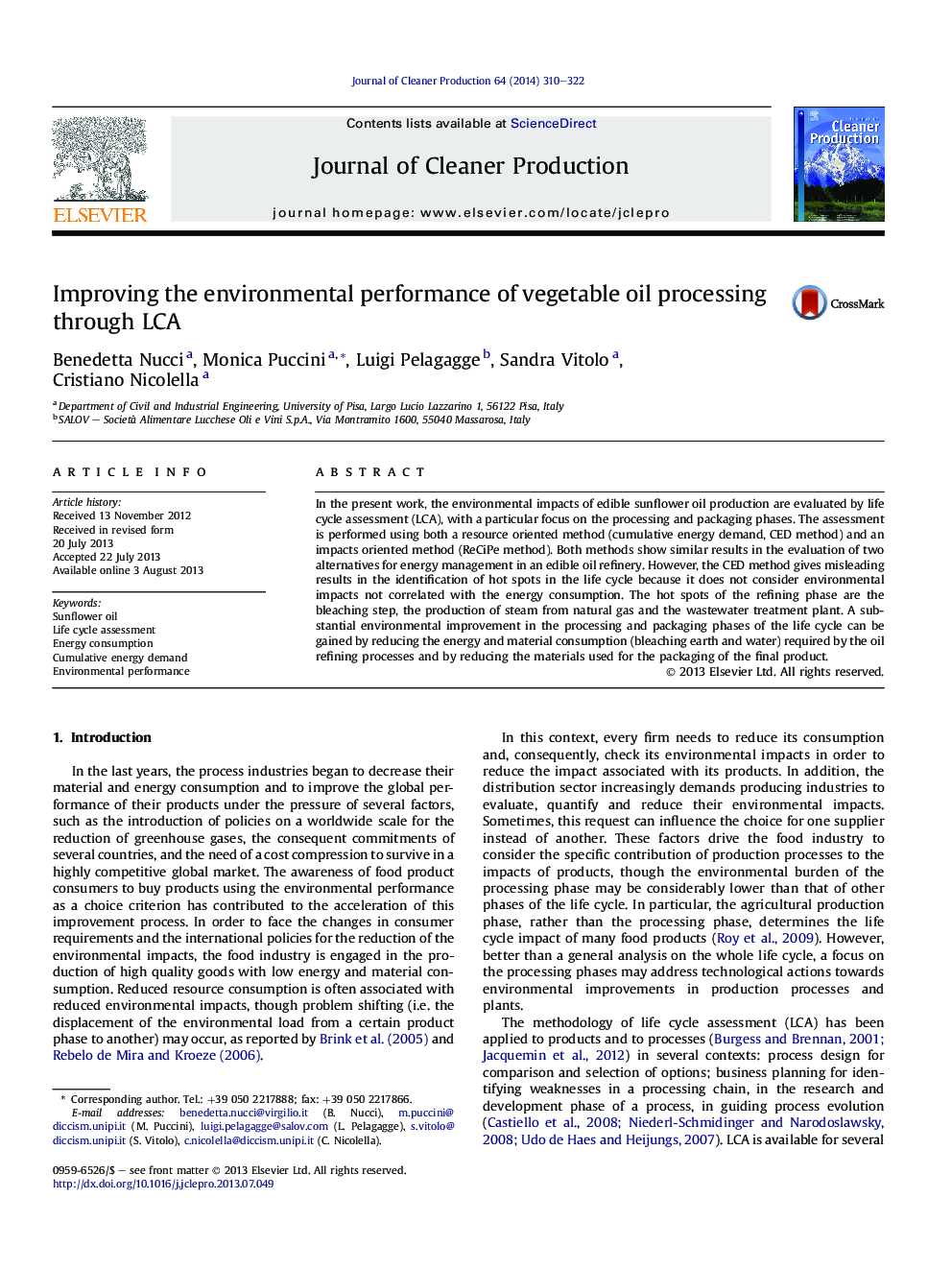| Article ID | Journal | Published Year | Pages | File Type |
|---|---|---|---|---|
| 8107002 | Journal of Cleaner Production | 2014 | 13 Pages |
Abstract
In the present work, the environmental impacts of edible sunflower oil production are evaluated by life cycle assessment (LCA), with a particular focus on the processing and packaging phases. The assessment is performed using both a resource oriented method (cumulative energy demand, CED method) and an impacts oriented method (ReCiPe method). Both methods show similar results in the evaluation of two alternatives for energy management in an edible oil refinery. However, the CED method gives misleading results in the identification of hot spots in the life cycle because it does not consider environmental impacts not correlated with the energy consumption. The hot spots of the refining phase are the bleaching step, the production of steam from natural gas and the wastewater treatment plant. A substantial environmental improvement in the processing and packaging phases of the life cycle can be gained by reducing the energy and material consumption (bleaching earth and water) required by the oil refining processes and by reducing the materials used for the packaging of the final product.
Keywords
Related Topics
Physical Sciences and Engineering
Energy
Renewable Energy, Sustainability and the Environment
Authors
Benedetta Nucci, Monica Puccini, Luigi Pelagagge, Sandra Vitolo, Cristiano Nicolella,
